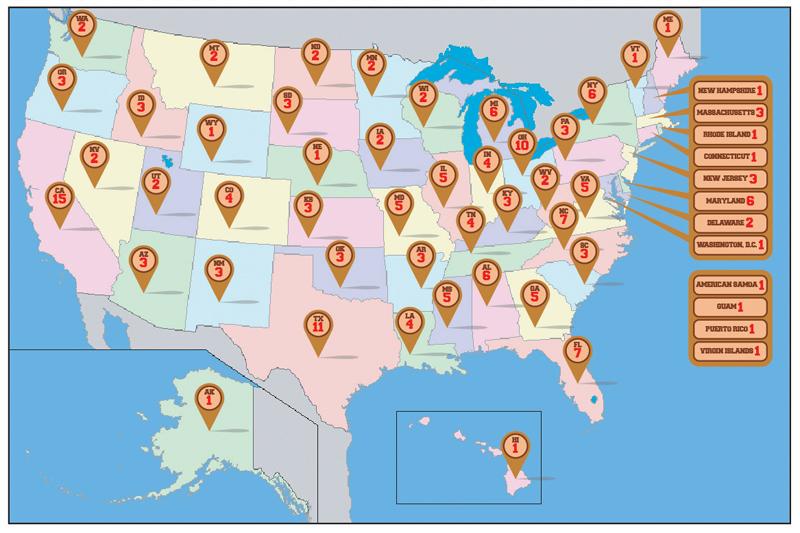
Graphic by Julie Waite / The Collegian
Source: Association of Public and Land-grant Universities
One of the foundations of higher learning in the United States was a piece of legislation passed in 1862. It was born of a man’s desire to provide rural access to education.
The Morrill Acts of 1862 and 1890 helped create what are called land-grant colleges or universities by providing land and funds to start institutions with a focus on agriculture and the mechanical arts, while not ignoring the traditional academic core.
The stated goal of the bill’s namesake, Justin Morrill, was to provide members of the working classes the opportunity to obtain liberal and practical educations.
The significance of the 1890 act was that it prohibited funding to states that used race as a factor for admissions into a university. Those states had to create separate land-grant institutions or end their discriminating practices.
What resulted was the creation of some of the most well known historically black universities in the country. Some of these are Tuskegee University, Alcorn State, and Grambling State.
The overall idea of establishing universities that focused on the practical application of agriculture and mechanical arts, and eventually the research into the refinement of those fields, was simple. There were many people throughout the country who worked in jobs related to those fields who needed opportunities to learn at a school not entirely focused on the classic academics of the university tradition.
The connections between universities and the surrounding communities have been present throughout the system’s history.
As far back as 1914, a Cooperative Extension Service was developed that used federal funds to create a position for a university employee to act as an adviser in every county to provide rural education for adults, said Fresno State’s J.G. Boswell Chair of Agronomy Bruce Roberts.
“Not everyone could attend a university,” Roberts said. “The extension service brought the university to them.”
Fresno State was one of those universities. The advisers still act as a conduit between the university and farmer. They deliver the research to the farmers and bring information about the problems faced in agriculture back to universities. Research and experimentation are executed find a solution.
Over the years, a school’s status as a land-grant college has meant varying levels of federal funding, often in conjunction with support from the state.
Fresno State was not created using the land or funding from the Morrill Acts. Land grants led to the creation of University of California, Berkeley and the University Farm at Davis and the Citrus Experiment Station at Riverside. These, in turn, became UC Davis and UC Riverside.
Fresno State is a member of the Association of Public and Land-grant Universities (APLU). Being a California State University, the funding is different for Fresno State than those universities that can trace their ancestry directly to the Morrill Acts. However, Fresno State’s history in agriculture advising and its classification as Hispanic serving institution places it in the APLU.
Even though Fresno State’s financial connection is primarily with the state, recent budget debates in Washington D.C. may impact funding. That possibility will be a focus for Fresno State and other APLU institutions across the country.
Member institutions are in all 50 states, the District of Columbia and four U.S. territories.





